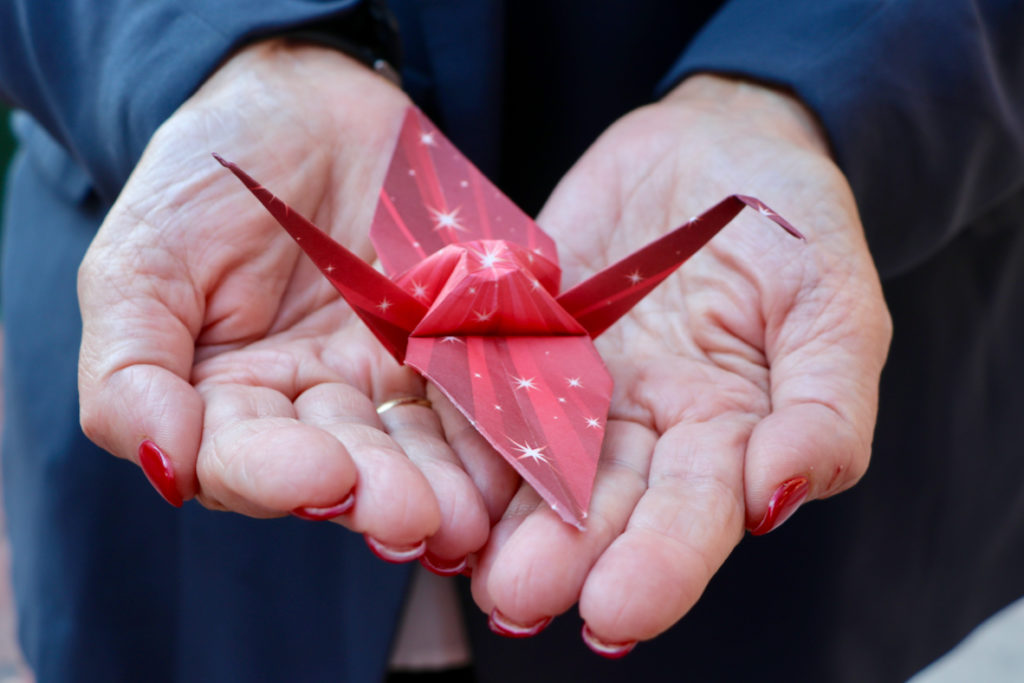
BY BETH REAVIS
NORFOLK — A wonderful event called the Hampton Roads Morning of Hope on Saturday, Sept. 8, at Mount Trashmore in Virginia Beach will bring together people whose lives have been touched by suicide or depression.
It is a morning of remembrance, hope, help and healing for people from around our region and members of the armed forces.
I lost my husband, John, to depression and suicide, and I will be one of the speakers at this year’s event to share my experiences and my path to healing.
The pain of that loss for my family and me was incredibly difficult, as is any loss of someone you love, but suicide is difficult and confusing for loved ones, especially children. Telling my children how their father died broke my heart, and the look on their faces will live in my memory forever.
Afterwards, I too felt the stigma and judgment of those around me regarding his suicide. Our friends and relatives asking me why, what had happened, what was wrong? I struggling with questions that had no simple answers.
I was acutely aware of the loss of my emotional and financial security and my new role as a single mother and provider. My days were a blur, and I operated on autopilot getting the kids off to school, fixing meals, doing laundry, sitting alone at my son’s baseball games. I cried in the car and in the shower when I was alone.
Even grocery shopping could devastate me. Out of habit, I would reach for his favorite ice cream and then, remembering, run from the store, sobbing, leaving a full cart of groceries in the frozen food aisle.
I needed to get a job, to deal with the issues of his estate and his business partners, all at a time when getting out of bed felt like a major accomplishment.
I will always be grateful for the love and support from family and friends, but they were also hurting and trying to make sense out of his death.
The passage of time gives you distance from your pain and sorrow, but healthy grieving is a process. My children and I took advantage of counseling, and I participated in the Hampton Roads Survivors of Suicide Support Group.
I never thought of myself as someone who would go to a support group. In the company of those kindred spirits, who were able to share their thoughts and feelings, I felt safe to feel and share my own feelings and thoughts.
I have been a volunteer for the Morning of Hope event and have folded and strung many origami cranes for the curtain of a thousand cranes that participants pass through as they begin their walk around the lake. The crane is a powerful symbol of hope and healing.
Getting out the message that depression is a treatable disease and suicide is a preventable tragedy is very important to me personally. The stigma of mental illness keeps many people who are suffering from seeking and following through with the treatment they need. We are changing that.
Sometimes when people ask me how my husband died, I want to say he died of shame. He saw his depression as weakness or some kind of moral failure. The biggest tragedy is that he died of something that was treatable. The brain is one of the most complex organs in the body, but we perceive mental illness differently than we treat physical illnesses.
To see suicide simply as a choice fails to understand and acknowledge that severe depression robs you of your ability to make rational decisions and leads to profound and overwhelming hopelessness.
If you or someone you care about has been touched by suicide or depression, please join me at Mount Trashmore to shine some light on this disease. Remember someone you lost and love. Stand shoulder to shoulder with other people who feel your pain and understand your grief.

Reavis lives in Norfolk. She retired after 46 years in social services. She has two children and seven grandchildren.
The Hampton Road Morning of Hope is on Saturday, Sept. 8, at Mount Trashmore in Virginia Beach. Visit hamptonroadssos-hope.org to register and for event details, or call Chris Gilchrist at 757-483-5111 for more information.
If you or a someone you know needs help, please call the National Suicide Prevention Lifeline at (800) 273-TALK, or (800) 273-8255.
© 2018 Pungo Publishing Co., LLC

